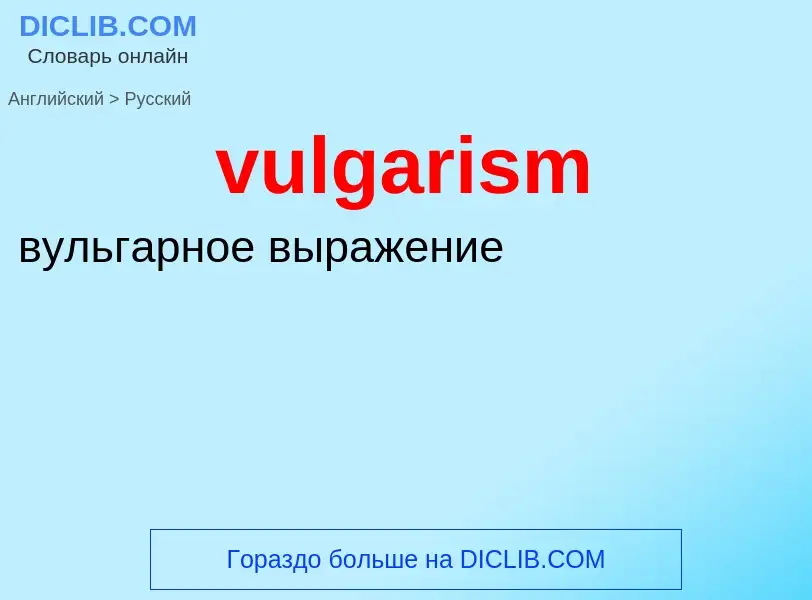Μετάφραση και ανάλυση λέξεων από την τεχνητή νοημοσύνη ChatGPT
Σε αυτήν τη σελίδα μπορείτε να λάβετε μια λεπτομερή ανάλυση μιας λέξης ή μιας φράσης, η οποία δημιουργήθηκε χρησιμοποιώντας το ChatGPT, την καλύτερη τεχνολογία τεχνητής νοημοσύνης μέχρι σήμερα:
- πώς χρησιμοποιείται η λέξη
- συχνότητα χρήσης
- χρησιμοποιείται πιο συχνά στον προφορικό ή γραπτό λόγο
- επιλογές μετάφρασης λέξεων
- παραδείγματα χρήσης (πολλές φράσεις με μετάφραση)
- ετυμολογία
vulgarism - translation to ρωσικά
['vʌlgəriz(ə)m]
существительное
общая лексика
грубое выражение
не принятое в литературном языке
вульгаризм
вульгарность
пошлый
вульгарный поступок
вульгарное выражение
Βικιπαίδεια
In the study of language and literary style, a vulgarism is an expression or usage considered non-standard or characteristic of uneducated speech or writing. In colloquial or lexical English, "vulgarism" or "vulgarity" may be synonymous with profanity or obscenity, but a linguistic or literary vulgarism encompasses a broader category of perceived fault not confined to scatological or sexual offensiveness. These faults may include errors of pronunciation, misspellings, word malformations, and malapropisms. "Vulgarity" is generally used in the more restricted sense. In regular and mostly informal conversations, the presence of vulgarity, if any, are mostly for intensifying, exclaiming or scolding. In modern times, vulgarism continues to be frequently used by people. A research paper produced by Oxford University in 2005 shows that the age group of 10–20 years old speak more vulgarity than the rest of the world's population combined. The frequent and prevalent usage of vulgarity as a whole has led to a paradox, in which people use vulgarity so often that it becomes less and less offensive to people, according to The New York Times.

